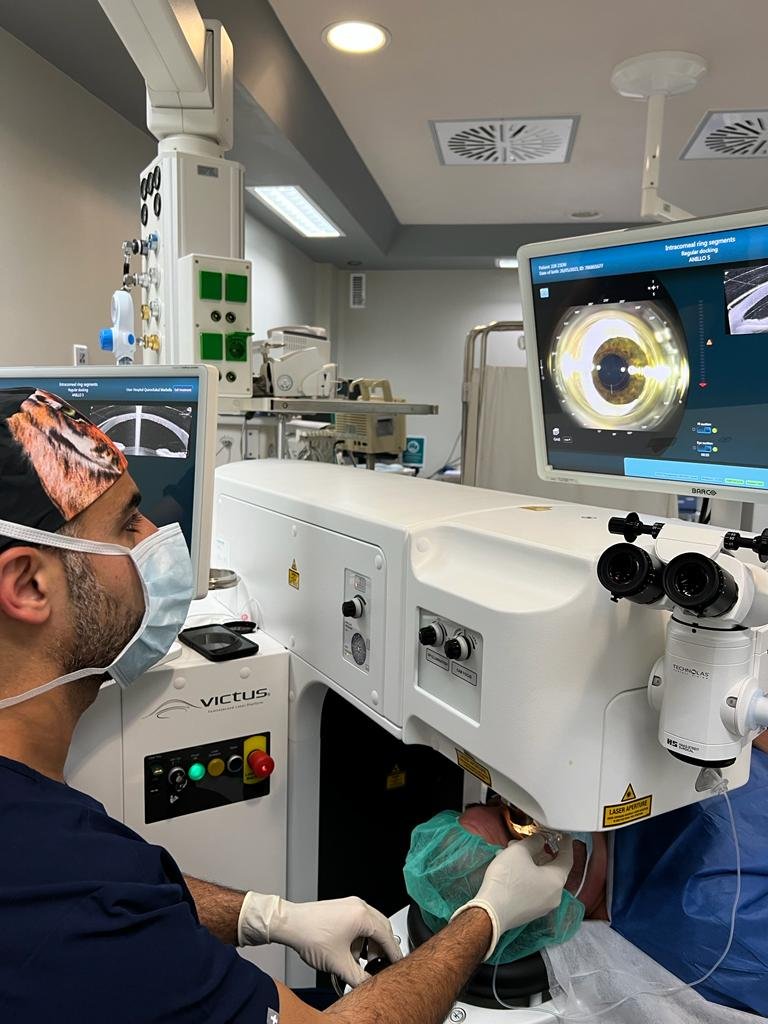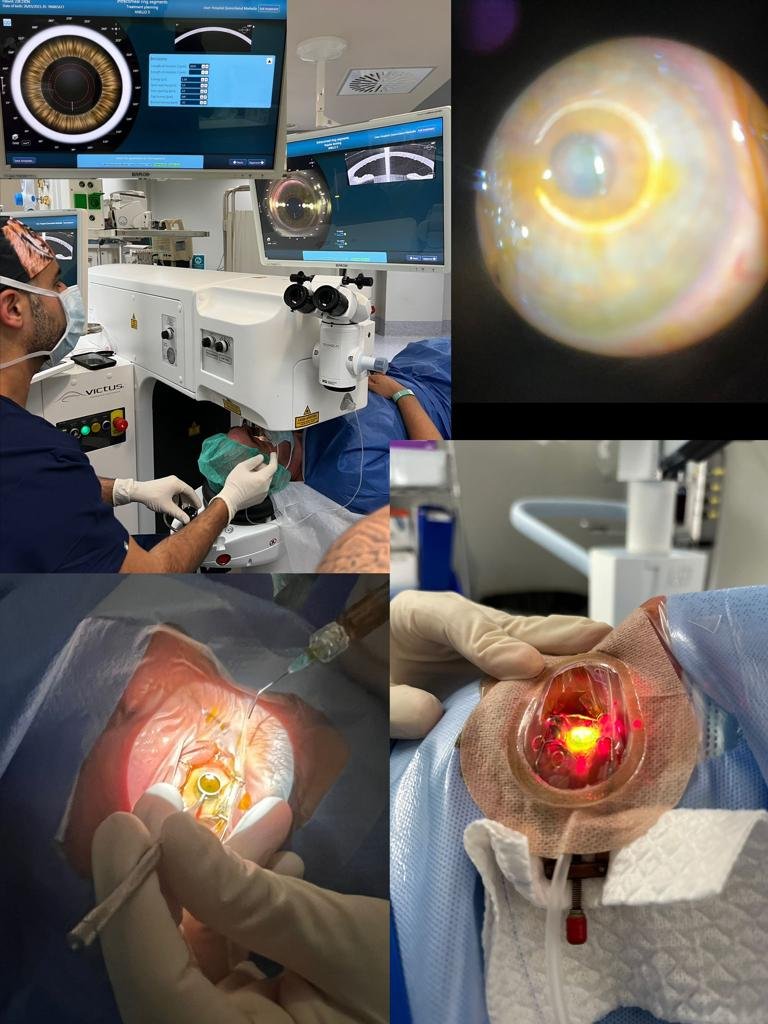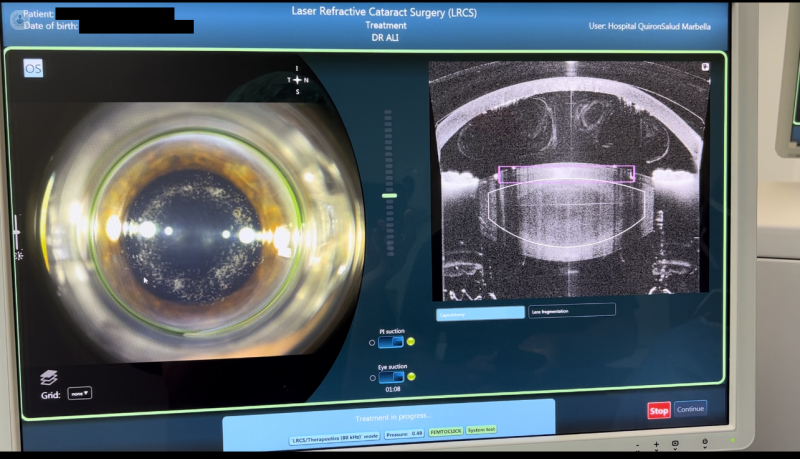Keratoconus is a progressive ophthalmic condition in which the cornea thins and takes on a bulging, conical shape. this disorder affects the corneal structure altering its naturally rounded shape and resulting in in the deterioration of vision .
In its early stages, keratoconus can be controlled with the use of glasses or contact lenses. However, as vision continues to deteriorate over time, the implantation of an intracorneal ring may offer a more optimal solution.
Delaying the progression of keratoconus by implanting intracorneal devices
The implantation of intracorneal devices is not only a corrects vision in cases of keratoconus, but also in cases of offers an additional benefit by slowing down its progression . This procedure provides an effective solution to treat residual vision problems associated with this condition, such as light sensitivity and blurred vision.

The implantation process consists of several meticulous steps followed by a highly qualified professional. A specialist in ophthalmology to ensure optimal results. It starts with the application of topical anaesthetic drops to numb the eye, followed by the use of a special device that keeps the eye open without causing discomfort.
A small incision is then made with an advanced laser system to gently separate the layers of the cornea. Finally, rings are strategically placed to flatten the bulge of the cornea, helping to improve vision and slow the progression of keratoconus.
Benefits of intracorneal rings in keratoconus treatment

The careful and precise insertion of microfine semicircular rings into the cornea offers a number of important benefits in the treatment of keratoconus. These rings, when placed delicately, can be used to treat keratoconus, flattening the cone-shaped protrusion altering its shape and location.
Although the extent of the keratoconus may influence the results, the insertion of the rings provides additional eye protection reducing the need for more invasive interventions. Although in some cases the continued use of glasses or contact lenses may be necessary, the cornea is now reinforced and protected from the most severe stages of the disease, offering a better quality of life for the patient.
Advanced treatment options for keratoconus
A diagnosis of keratoconus can cause anxiety and worry about vision loss. In response to this concern, Dr. Ali Nowrouzi and his team are fully committed to providing state-of-the-art solutions for this ophthalmic condition.
With a well-established reputation as one of the world's leading eye surgeons, Dr. Nowrouzi has dedicated his career to the treatment of keratoconus and other corneal pathologies. With years of experience and active membership in the international keratoconus society, Dr. Nowrouzi employs modern, state-of-the-art techniques to address this progressive disease.
Keratoconus, an ectatic corneal disease that affects a considerable proportion of the population, presents unique challenges in its treatment. Although several techniques have been studied, such as intrastromal corneal ring segment (ICRS) and collagen crosslinking (CXL), Dr Nowrouzi focuses on methods such as topographic and wavefront-guided photorefractive keratectomy (ttPRK). ), often combined with phakic intraocular lens (pIOL) and CXL implantation.
While ICRS or PRK-crosslinking (CXL) protocols aim to normalise the shape of the cornea, Dr Nowrouzi recognises the importance of addressing refractive problems, especially in cases of high anisometropia. In this regard, phakic intraocular lenses (PIOLs) play a crucial role in the visual rehabilitation of patients with keratoconus, helping to overcome the challenges associated with significant refractive errors and anisometropia, which can limit the use of spectacles.






